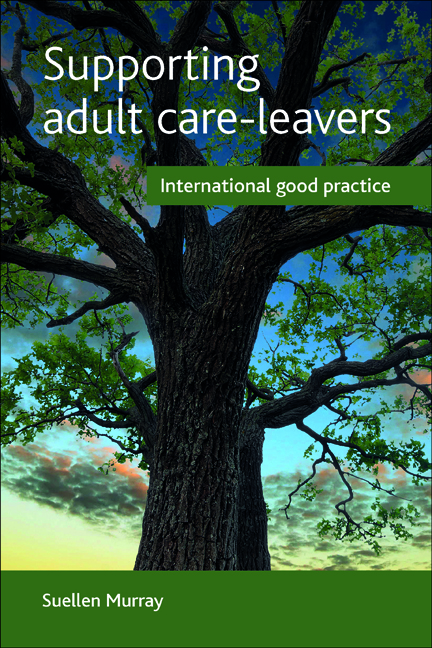Book contents
- Frontmatter
- Author biography
- Acknowledgements
- Contents
- List of abbreviations
- List of tables, figures and boxes
- One Introduction
- Two Care and its aftermath
- Three Public inquiries
- Four Apologies, memorials and other acknowledgements
- Five Reparation and redress
- Six Specialist support
- Seven Access to records and family reunification
- Eight Advocacy and consumer participation
- Nine Good practice in supporting adult care-leavers
- Notes and references
- Select bibliography
- Index
Eight - Advocacy and consumer participation
Published online by Cambridge University Press: 01 September 2022
- Frontmatter
- Author biography
- Acknowledgements
- Contents
- List of abbreviations
- List of tables, figures and boxes
- One Introduction
- Two Care and its aftermath
- Three Public inquiries
- Four Apologies, memorials and other acknowledgements
- Five Reparation and redress
- Six Specialist support
- Seven Access to records and family reunification
- Eight Advocacy and consumer participation
- Nine Good practice in supporting adult care-leavers
- Notes and references
- Select bibliography
- Index
Summary
Until very recently, no-one would believe the abuse and harm that had been done to us! The awfulness we experienced as children has cast long shadows over our adult lives. (Care Leavers Australia Network)
Over the past 15 years, Care Leavers Australia Network (CLAN) has been instrumental in the development of social policy responses to adult care-leavers in Australia. CLAN has engaged in a range of advocacy activities, including regular protests about the treatment of adult care-leavers in Australia and the lack of support for them. In their protest brochure, from which the above quotation is derived, they point to the need for the wider community to understand their experiences of care and its aftermath, a change that is occurring at the time of writing due to publicity surrounding the Royal Commission into Institutional Responses to Child Sexual Abuse.
This chapter is concerned with the ways in which adult care-leavers and advocacy organisations such as CLAN have been involved in bringing about social policy changes. Two ways are considered: advocacy and consumer participation. Both involve the engagement of adult care-leavers in social policy processes to ensure the inclusion of their perspectives, with the aim of creating ‘opportunities for change … through active citizenship and participation in decision-making around the issues that affect them’. With advocacy, adult care-leavers lead and attempt to influence social policy from ‘outside’; in contrast, consumer participation entails working on the ‘inside’ in the social policy processes. Advocates may, of course, also be consumer participants.
Advocacy can involve work with individuals (sometimes known as case advocacy) or collectives (cause advocacy) to bring about change. Case advocacy entails ‘collaborating with a client, then going with them to the site of the injustice and assisting them to navigate systems, public servants, and the general public’. Cause advocacy is involved with ‘pleading the case of injustice … to meet the needs of specific groups’. Advocacy operates both in terms of its outcomes and also its process – both the ends and the means. As noted by Andrew Hewett and John Wiseman, ‘advocacy work is about achieving change in a policy or practice of targeted public or private sector institutions’; it is also about ‘enhancing the capacity and the strength of individuals and communities so that they may shape their own futures’.
- Type
- Chapter
- Information
- Supporting Adult Care-LeaversInternational Good Practice, pp. 161 - 182Publisher: Bristol University PressPrint publication year: 2015

